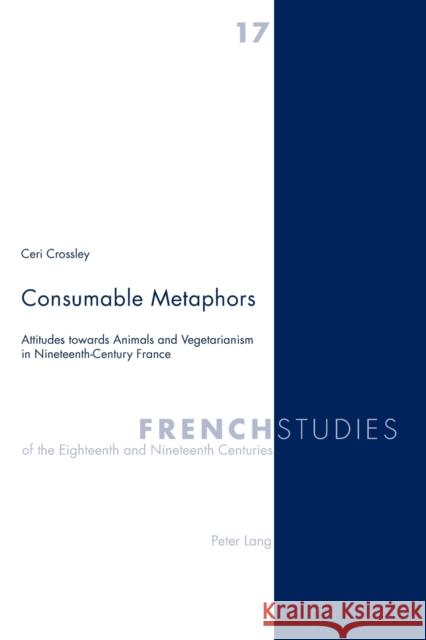Consumable Metaphors; Attitudes towards Animals and Vegetarianism in Nineteenth-Century France » książka
Consumable Metaphors; Attitudes towards Animals and Vegetarianism in Nineteenth-Century France
ISBN-13: 9783039101900 / Angielski / Twarda / 2005 / 322 str.
This book studies the various definitions of animal nature proposed by nineteenth-century currents of thought in France. It is based on an examination of a number of key thinkers and writers, some well known (for example, Michelet and Lamartine), others largely forgotten (for example, Gleizes and Reynaud). At the centre of the book lies the idea that knowledge of animals is often knowledge of something else, that the primary referentiality is overlaid with additional levels of meaning. In nineteenth-century France thinking about animals (their future and their past) became a way of thinking about power relations in society, for example about the status of women and the problem of the labouring classes.
This book analyses how animals as symbols externalize and mythologize human fears and wishes, but it also demonstrates that animals have an existence in and for themselves and are not simply useful counters functioning within discourse.











